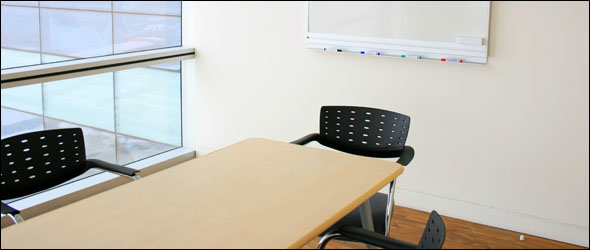Scholarship Interview Advice: Loran Award
Categories: Scholarships

A lot of people have been asking me about advice for the Loran Award regional interviews that are coming up in a few weeks. I decided to compile a lot of the things I have been telling students into an article here. Keep in mind that I did not move on to nationals when I went through these interviews two years ago.
NOTE: I’m not claiming to know anything in detail about the selection process or how the judges are trained to assess the applicants, so this is just my opinion, and you should take it with a grain of salt.
Regional Interview Structure
This is the structure for the regional interview I had in fall of 2005. It could have changed since then, but I highly doubt it.
The students in each region were divided into groups of about 10 students. Each group was associated with a panel of four judges.
In the morning you have two 15 minute interviews, each of them a 1-on-1 with a judge from your panel.
You then have lunch with a third judge from your panel, along with one or more of the other semi-finalists from your group.
In the afternoon you have a 15-20 minute interview with all four judges on your panel – so there’s one judge you won’t meet until the final panel interview.
I’m not really sure how the selection process goes from there, but I would imagine something like two students from each group move on to nationals, but I’m not really sure.
Interview Questions
In terms of the questions, most of mine where based on my application.
A few general questions that I got were: “What did you do this past summer? How do you motivate people?” But beyond that, I don’t recall there being too many non-application specific questions.
Apparently, some semi-finalists have reported being asked about their opinions on certain current events/issues. Other semi-finalists have apparently been asked to talk about historical leaders they admirer, etc. I was personally never asked anything like that, and it seems as if these types of questions could come on it depending on your judges or region. It is probably important to keep this in mind during your preparation (e.g. you may wish to catch up on current events or review some history, etc.)
Preparing for the Interview
I think that the most important piece of advice is to be completely honest, and not be afraid to share how you personally feel about things. Particularly in the Loran process, I think being honest and sharing your passions is really important. They want students who are sincere and genuine. I gave a lot of politically correct answers, because I was embarrassed to be 100% honest in some cases, and I think that’s what hurt me.
Remember, the Loran judges are looking for leadership/service/character potential. I get the feeling that once you reach the interview stage, the application doesn’t matter much anymore.
I think a lot of people prepare for interviews by searching for a bunch of interview questions and coming up with some premade answers, which they then practice over and over again. I really don’t think that’s the best way to do it.
For the most part, I think you should look at it as a conversation or discussion rather than an interview – except that it is a conversation where you usually do the most talking. The idea is that you want to feel comfortable in the interview process; so comfortable that you can just be yourself and talk as you normally do.
When you talk to people in everyday life, you aren’t regurgitating lines that you memorized. You’re just talking. Understanding this is particularly important for the Loran, in my opinion, who are looking for honest and genuine people who are just their passionate selves.
So I think the best way to prepare for the Loran interview (and for most interviews in general) is to just do a bunch of reflection, and discussions/conversations with friends/family who know you well. Reflect personally or discuss with them what you think your strengths and weaknesses are. Discuss with them what leadership means, and what it specifically means to you, etc.
You’re not necessarily memorizing your answers, but you’re getting ideas flowing and creating a huge pool of ideas, information, and perspectives in your head that you will be able to draw from during the interview.
In particular, during preparation, I suggest you:
- Know your application and the things you wrote about inside and out. Most of the questions are going to be about what you wrote in your application.
- Reflect a lot on what leadership, service, and character mean to you, and in terms of the things you mention in your application.
- Reflect on your personal interests, hobbies, and things that help you relax and have fun. Reflect on your motivations for all the great work that you do.
- Reflect on how you plan on continuing your service in the future, and where you see yourself in the future in general.
The idea is that through reflection you will really understand yourself, and there will be no need to memorize answers to specific questions; that is, the answer will naturally come to you because you’ve thought through most of the hard things.
Last of all, good luck!